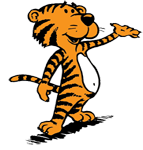4th Grade Newsletter
November 3, 2020
Language Arts
What are we learning?
- The next couple weeks will be focused on reading and writing poetry. This is an exciting unit that allows students to use their creativity as they experiment with language.
- Students will be using and interpreting figurative language as they encounter similes and metaphors in their reading and learn to use them in their own writing.
- In fourth grade, students are not expected to know and identify simile, metaphor, onomatopoeia, alliteration, hyperbole and personification; however, students need to be able to recognize these as examples of figurative language.
Home/School Connection
- What is this poem mostly about?
- What are lines ____ mostly about?
- Which sentence would be best to include in a summary of the poem?
- What was the main conflict the speaker of the poem faced?
- How was the conflict resolved?
- What are you thinking about?
- What are you visualizing (picturing in your mind)?
- What are you feeling?
- How do the poetic tools or organization contribute to the deeper meaning?
Math
What are we learning?
- Comparing fractions (greater than/less than, equal to)
- Benchmark fractions (0, ½, 1) on a number line. Which benchmark is a specific fraction closest to?
- Comparing and ordering fractions from least to greatest and greatest to least.
Home/School Connection
- Encourage your child to divide their plate in to fractions (how much of your meal is protein, veggies, carbs)
- Cut food into halves, fourths, eighths. What would give you the biggest/smallest piece?
- What amount of your meal would you need to eat to be closest to a quarter/half/three quarters of your food?
- Involve your student in construction, cooking, and measurement using measuring cups, spoons, and/or tapes.
Science
What are we learning?
- We will be starting energy and discovering it is both potential & kinetic
- We will see how it can’t be destroyed or created.
- An object’s motion is described by its direction and the speed.
- Energy moves through electrical circuits.
Home/School Connection
- Place a ball on the floor, ask if it has potential energy?
- Once it is pushed, talk about it’s kinetic energy, how far it will move and how fast?
- If you push the ball harder what happens? Softer?
- Ask how the electricity moves through the wires in your house?
- How can I turn on a switch and the light lights up?
- Why does it go off?
Social Studies
What are we learning?
- We are continuing to explore our current unit of Jamestown!
- We will compare Jamestown to the Powhatan tribes
- We will begin to explore how the new world began to change - how more settlers came to the new world
- We will understand the life of an indentured servant in the new world
- We will explore the new world as it expanded
Home/School Connection
- Would you travel to Jamestown in 1607? Why or why not?
- What was the voyage to Jamestown was like?
- Why was the location of Jamestown chosen?
- What was the New World like? What would you have done if you went to Jamestown? Would you be scared? Why or why not?
- Why was Captain John Smith important? What did he do for the colonists?
- What was Captain John Smith’s famous quote? Did you agree or disagree with his view on work?
- What are the differences between Jamestown settlers and the Native People of Virginia?
- What is an indentured servant? What was life like in the New World as an indentured servant?
- How did the government begin to grow in Jamestown?
Positivity Project
- Students explore perspective when they consider all different points of view
- It is election time and people have different points of view; what are some issues people may consider when choosing a leader? Why is it important to understand where other people are coming from?
- Students show bravery by showing strong mental, physical, and moral strength even when circumstances are difficult
- During the current school year, how have you shown bravery?
- What is more difficult for you, mental, physical, or moral strength?



